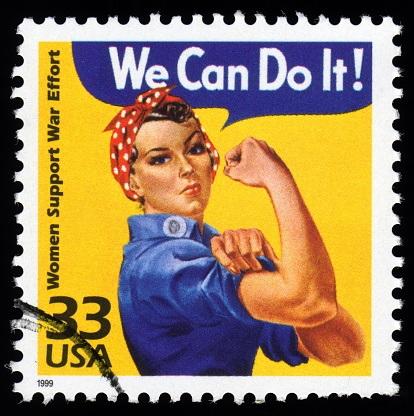President
- FMA
- The Fabricator
- FABTECH
- Canadian Metalworking
Categories
- Additive Manufacturing
- Aluminum Welding
- Arc Welding
- Assembly and Joining
- Automation and Robotics
- Bending and Forming
- Consumables
- Cutting and Weld Prep
- Electric Vehicles
- En Español
- Finishing
- Hydroforming
- Laser Cutting
- Laser Welding
- Machining
- Manufacturing Software
- Materials Handling
- Metals/Materials
- Oxyfuel Cutting
- Plasma Cutting
- Power Tools
- Punching and Other Holemaking
- Roll Forming
- Safety
- Sawing
- Shearing
- Shop Management
- Testing and Measuring
- Tube and Pipe Fabrication
- Tube and Pipe Production
- Waterjet Cutting
Industry Directory
Webcasts
Podcasts
FAB 40
Advertise
Subscribe
Account Login
Search
Greatness in sheet metal forming
The journey to excellent results in stamping begins with an understanding of the material used in the application
- By Bill Frahm
- June 15, 2017
- Article
- Bending and Forming

If companies want to make manufacturing in American great again, they are going to need to dedicate themselves to cultivating the next generation of manufacturing minds.
Greatness! It’s much discussed today in political circles. While it makes a good campaign slogan, it’s meaning remains elusive. We can’t even agree today about what “American greatness” means. What does it really mean to you? How does it relate to component forming in the sheet metal industry?
While this isn’t a political document, I feel the need to explain that the country is not necessarily a wasteland of shuttered plants and jobless people. What I see is a nation of decent and hard-working people full of hope for their futures. These same people are rebuilding cities that decayed during the past few decades. Detroit, where I live, is becoming a thriving business and entertainment destination. Our downtown, neighborhoods, and old plants are attracting new investment for a hopeful future. We here are working and happy.
Our nation was once a willing leader in global technology and product development. Our know-how, generosity, and economic might helped lift nations, supported industrial development, and offered the world the freedom to choose among many reliable, quality products. We do have discontent over numerous issues, but we should not be willing to sacrifice our shared values, productivity, and progress.
Our national issue isn’t a lack of jobs. To the contrary, our real problem is an abundance of rewarding jobs that remain unfilled because of a lack of available skilled employees. Hiring managers in manufacturing are frustrated trying to find skilled and motivated employees to fill well-compensated positions. Washington can’t fix this. Our representatives can reward favored and punish unfavored parties with the tax code, throw money at programs, and fight for fair trade policies, but they can’t fix the nation’s work skills. Only you can do that.
In our manufacturing world, the science of sheet metal forming continues to advance at an increasing rate. In automotive applications especially, we no longer stamp out highly ductile, low-carbon steel components. We now have 3,500 grades of steel with differing ductility and strength. Auto makers use aluminum in some applications to reduce weight. Some are researching magnesium for components, too. Appliance manufacturers, faced with the rising costs of stainless steel, are using different grades that require greater corrosion resistance. Electronic component manufacturers are faced with stamping durable precision components as products become even smaller.
Along with the number of metals to choose from, we see greater use of simulation technologies, manufacturing automation, hot and warm forming, new tooling steels, new lubricants, and much more information to sort through. We also want to understand more about microstructures, inter-diffusion layers, quenching rates, and edge cracking. All of this requires a greater degree of skill among everyone from lab technicians to managers, diemakers, and operators. To meet our challenges, we must adopt a culture of learning and attract new young minds to the industry.
Where do we begin our journey to greatness?
As a metalforming professional, your company must begin with the fundamentals. Does your organization have a deep understanding of ...?
- What tensile properties are and how they relate to forming?
- How to read and interpret a stress/strain curve?
- What the forming limit diagram is and what it means to your forming results?
- What stress, major strain, and minor strain are?
- The difference between true strain and engineering strain?
- How sheet metal is alloyed, rolled, coiled, and treated, and how each step affects its properties?
These are the basic facts about the materials you use. These properties give you an understanding of how stretching, drawing, and bending will affect your chosen material while forming your component, as well as the limits at which the material will fail. Understanding these properties supports reliable simulation, die design, and forming. Your advantages will include fewer tryouts, less scrap, quality product, and a less frustrating experience. Also, knowledge of these properties will greatly improve your ability to successfully troubleshoot problems when they arise.
We all need to promote a learning culture among experienced employees and encourage students to enter the industry. It’s a problem across manufacturing disciplines that many employees are approaching retirement age. There is often a lack of adequately experienced and knowledgeable people coming up to replace the contributions of retiring employees.
Unfortunately, manufacturing isn’t often considered desirable by talented young people. Stories of dirty plants, poor working conditions, surly managers, and frequent injuries make manufacturing unattractive when compared to the bright offices and congenial management attitudes of technology or administration. A recent study conducted by the University of Wisconsin-Milwaukee and funded by the National Science Foundation discovered that even though 20 percent of engineering graduates are female, only 11 percent continue to work in engineering. The most often cited reason for leaving was dissatisfaction with the working environment. Frankly, if we are to thrive, we must do better at attracting and retaining smart, capable talent.
We need to take a longer-term view of the talent available to us. It is unfortunately short-sighted that accountants record employees as expense items. Our products and components are all the result of work. The better our skills at attracting, managing, and retaining talent, the better our work product will be and the greater our efficiency.
Where does learning come from?
- Seek out knowledgeable consultants and practitioners.
- Partner with a local trade schools, universities, or community colleges.
- Sponsor and support internships and apprenticeships.
- Participate in trade organizations, such as the Fabricators and Manufacturers Association Intl. (FMA), North American Deep Draw Research Group, American Iron and Steel Institute, and the Aluminum Association.
The ability to support our manufacturing economy, provide quality products and components, and lead a productive and rewarding life is in your own hands. Opportunities to learn and excel are as close as your nearest college, library, or computer. Take advantage of them. Learn your profession and share your knowledge and sense of fulfillment with others.
This is how we make America and sheet metal forming great!
About the Author

Bill Frahm
P.O. Box 71191
Rochester Hills, MI 48307
248-506-5873
subscribe now

The Fabricator is North America's leading magazine for the metal forming and fabricating industry. The magazine delivers the news, technical articles, and case histories that enable fabricators to do their jobs more efficiently. The Fabricator has served the industry since 1970.
start your free subscription- Stay connected from anywhere

Easily access valuable industry resources now with full access to the digital edition of The Fabricator.

Easily access valuable industry resources now with full access to the digital edition of The Welder.

Easily access valuable industry resources now with full access to the digital edition of The Tube and Pipe Journal.
- Podcasting
- Podcast:
- The Fabricator Podcast
- Published:
- 04/16/2024
- Running Time:
- 63:29
In this episode of The Fabricator Podcast, Caleb Chamberlain, co-founder and CEO of OSH Cut, discusses his company’s...
- Trending Articles
Tips for creating sheet metal tubes with perforations

Are two heads better than one in fiber laser cutting?

Supporting the metal fabricating industry through FMA

JM Steel triples capacity for solar energy projects at Pennsylvania facility

Omco Solar opens second Alabama manufacturing facility

- Industry Events
16th Annual Safety Conference
- April 30 - May 1, 2024
- Elgin,
Pipe and Tube Conference
- May 21 - 22, 2024
- Omaha, NE
World-Class Roll Forming Workshop
- June 5 - 6, 2024
- Louisville, KY
Advanced Laser Application Workshop
- June 25 - 27, 2024
- Novi, MI


























